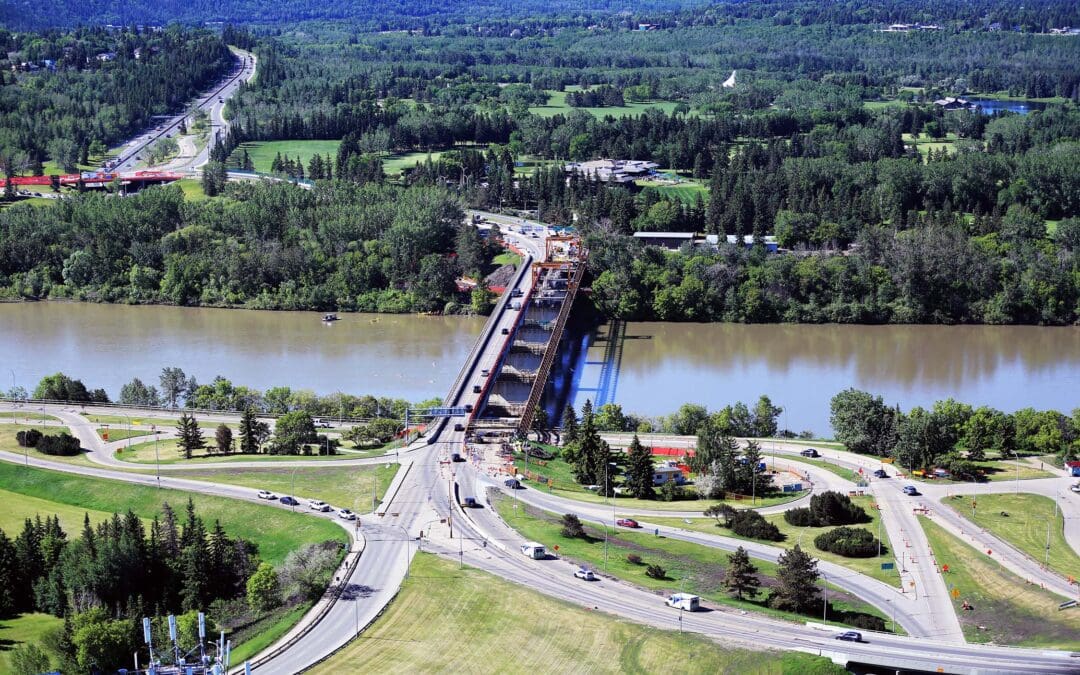Construction is a complex industry requiring interactions among diverse participants to plan and execute a project. As the industry’s information handling transitioned away from paper, the amount of raw data in digital form exploded. A mixer-load of concrete or a shipment of structural steel still was just one material item. But where in the past it would simply generate a line-item in a project management file, now every step in the material’s journey through the construction cycle – as well as its cost and how much a company might be using and paying at its various operating locations – left a digital trail. Construction providers had difficulty figuring out how to transform the growing data torrent from a problem to be managed into an opportunity to improve their business. The concurrent proliferation of task-oriented software worsened data fragmentation and incompatibility.

Graham Construction is currently in year two of an initiative to create a new data platform aimed at transforming data into an enterprise-level asset that will improve the company’s efficiency and deliver better outcomes for project owners. “Data is a by-product of the business process,” explains Annette Cooper, Director of Data and Analytics in Graham’s IT and Enterprise Applications Department. “Because data is everywhere and growing so quickly, you have to figure out what’s important and then figure out what to do with what’s important. To really understand what’s driving productivity, what’s driving safety, you need data from multiple sources, make sure it’s all correct, and make sense of it.”
Such insights helped Graham realize it needed a new data platform powerful enough to draw in and combine data from disparate systems. “Right now, a construction provider can’t get a view across their whole company, or mix data from different sources easily,” notes Cooper. For example, a leader might need particular information or a type of report, but the required raw data might not have seemed relevant when designing systems for field use, so it wasn’t captured for use, Graham’s data and analytics strategy requires the organization to learn new concepts, notes Cooper, things like “data governance” – how people and systems look after data. The overall goal is to help Graham become better at what Graham does. Last year was devoted to strategy, conceptual development and road-mapping. This year is seeing the first phases of implementation.
The data initiative builds upon a long history of innovation and leadership. This includes Graham’s internal restructuring to a shared corporate services model approximately 15 years ago, and its in-house development of “Toolbox”, a universal project management system that sought to draw data from all relevant sources and make it available to all users in common form. In its day, Toolbox was a daring industry-leading solution for a construction world not yet drowning in data. But as everything became more digital, explains Cooper, “We got more and more systems that do pieces of the totality, all creating data in their own way, and as we acquired or merged with new companies, we bought entire new sets of systems that don’t talk to each other.” Toolbox is currently being decommissioned and replaced with Toolbox Next Generation (TNG). But even TNG can’t provide a “wall-to-wall system”, says Cooper; the burgeoning amount of data defies doing so.
“There is a spirit of innovation here at Graham that is bold.”
Thankfully, says Cooper, who joined the company in January 2022, “There is a spirit of innovation here at Graham that is bold.” The previous year, the company had recognized the need to bring in leadership to move beyond using data in the typical task-oriented, isolated (and often incompatible) way. That led to the decision to directly confront the “big problem” – the enterprise level. Senior leadership authorized creation of the new Data and Analytics Office. The new team set forth with an ambitious goal: to create a plan ready to commence building within one year.
Starting at the enterprise level enabled both a clarity of vision and the needed breadth of scope. The team conceived a system that could pull all important data from all of the company’s disparate systems and sources into a data platform “hub”. Every system that creates or uses data would be connectible to the platform, creating digital connections throughout the business that would bring data from across the business together. When a user wanted a set of information or to generate a report, the data platform would make it available.
“Among the key objectives “is to get everyone in Graham or working with Graham to work off the same data”, says Cooper. “People and project sites will still enter data in the same systems as they do now, but they will be empowered with tools and training to be able to access what they need, when they need it.” The result: a “single source of the truth” enabling a single Graham view of things.”
Central in the overall project is the company’s commitment to become future-ready by creating a sustainable data infrastructure that improves with time. “There are easier ways to get some short-term wins than the path we’re taking,” acknowledges Cooper. Doing something narrower in scope could work immediately and show value. The critical drawback is that this cannot be scaled to an enterprise level. By contrast, says Cooper, “We are setting things up to be head-of-class in about five years and, more important, to be able to make use of technologies that we think will mature in five to ten years.”
As Graham’s system matures it will be expected to support machine learning, artificial intelligence (AI) and the handling of “unstructured data”, information that can’t be stored numerically, such as field video feeds from drones or helmet cams. These are capabilities, Cooper notes, that everyone wants right now but which actually depend on a data platform that can access and govern data effectively: “It’s only ‘game-changing’ if you can make it work for your whole enterprise, not if you just use little bits of it in a few isolated places.”

Project owners – Graham clients – stand to benefit from this initiative. A later stage, new client portal will open a window to Graham’s “single source of the truth”, delivering much greater project visibility. This will include on-demand access to images of the work as it’s coming along and to a variety of reports concerning quality assessments, health and safety metrics, where the project’s various elements sit on their timelines, and costs incurred. The real-time visibility should, in turn, create opportunities for changes to design, materials or functionality before construction is locked in. Currently hard-to-access information, such as what lies within walls or beneath concrete, will be visible for the owner’s future use.
More broadly, Graham’s overall objective is to become more efficient, more consistent and more cost competitive as a result of its transformation of data into an enterprise asset. Cooper’s team is charged with having initial data products working this year.



